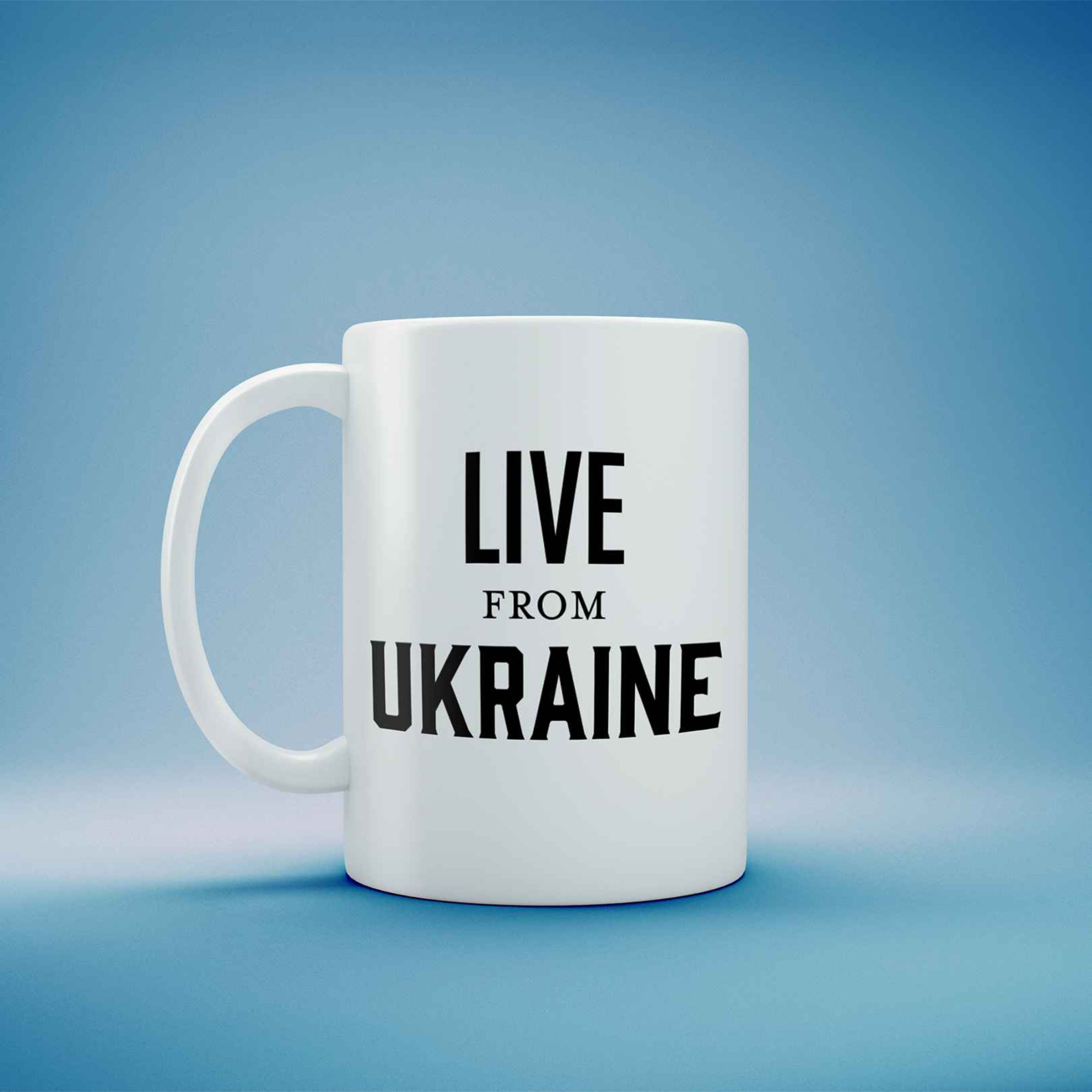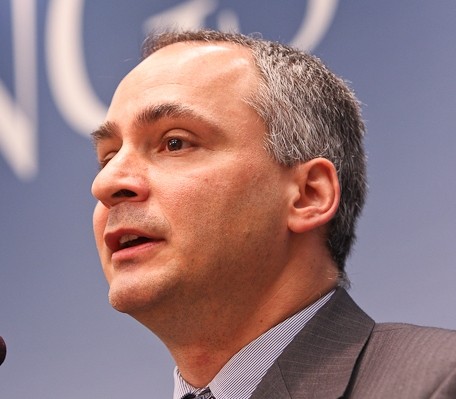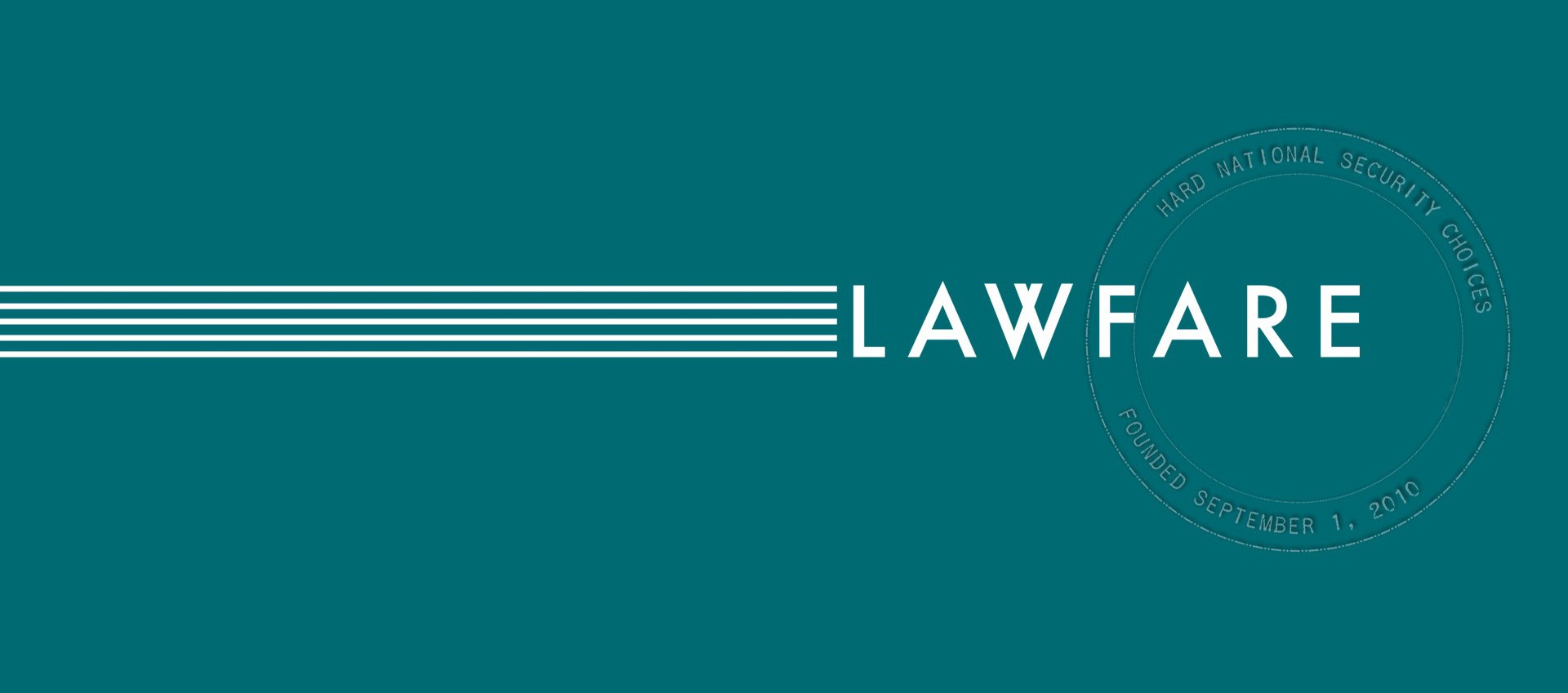Belatedly Introducing #LiveFromUkraine
Lawfare’s newest experimental podcast.

Published by The Lawfare Institute
in Cooperation With

I had a remarkable conversation this week with a woman named Katya Savchenko, a survivor of the murderous Russian rampage in Bucha who is originally from the Donbas region of Ukraine and has been twice displaced by Russian invasions—first in 2014 and more recently this year. Savchenko has written a truly compelling diary of her experience earlier this year in Bucha, one I encourage people to read. But in our conversation she said things that are not in the diary itself: that her grandparents, who are still in Donbas and are pro-Russian, don’t believe what happened to her family, for example, and that she is afraid to go home and is working in Warsaw and donating her income to the Ukrainian military.
Savchenko and I were not in the same room for this conversation, or even on the same continent, though the magic of Twitter Spaces allowed around 1,000 people to join us for it. If you were not present when it happened, don’t worry. You can listen to it here:
The conversation is the eleventh in a series of interviews I have conducted, all on Twitter Spaces before a live audience of whoever shows up, we call #LiveFromUkraine. We launched the podcast, working with the good folks at Goat Rodeo, with the softest of soft-launches. Having no idea if anyone would show up for the live events or if Twitter Spaces audio would actually be adequate for a podcast, we barely announced we were doing it. We just started.
The goal was twofold: First, I wanted to educate myself on the Russia-Ukraine conflict by talking to Ukrainians affected in very different ways by the war; and second, I wanted to give other people an opportunity to engage directly with these Ukrainian voices as I was learning from them.
Having now done a handful of these conversations, I want to suggest that this body of work offers a unique window into the war. It’s not an oral history, and it doesn’t tell the story that journalists in the field are telling—though the press is, by and large, doing a terrific job of covering the war, in my view. These are portraits through conversations of individuals who, in very different ways, have been activated as public voices of their country while it is under brutal, genocidal attack.
The conversations have been diverse. One of my guests was not even Ukrainian, but is a former Marine who now studies the Russian military and discusses its performance in Ukraine in detail:
The guests have included a thinktank analyst in Kharkiv, a longtime Ukrainian diplomat, a college student, podcaster, and journalist for the Kyiv Independent, and a remarkable array of others. What all of the episodes have in common is that they feature voices I have found useful on Twitter as I have struggled to understand the Ukrainian struggle and to unlearn three decades of assumptions I have had about the country.
Here are all of the episodes to date in reverse chronological order:
The next episode is scheduled for this coming Thursday and will be with Tyrrell Jermaine Starr:
Coming on Thursday on #LiveFromUkraine: @terrelljstarr joins us from Brooklyn! He’s one of the most interesting Ukraine commentators around—with both an insider and outsider perspective.
— Benjamin Wittes (@benjaminwittes) July 15, 2022
Join us with your questions!https://t.co/slWzh1Iax3
I will continue doing these conversations whenever I can schedule one for as long as the conflict lasts. To join live, follow me and Lawfare on Twitter. The next episode of #LiveFromUkraine is pinned to the top of my feed whenever one is scheduled.
And please do subscribe and share the podcast feed so you don’t miss those we conduct at inconvenient times.





